resourcing our movement
A few weeks ago, we held our early winter member gathering, “Coming Together for Story and Strategy” at the Dená Movement Commons. As the results of the General Election came in the days before the event, we soon realized that our planned agenda would need to be adjusted, to spend as much time as possible tending to our community in that moment, while still spending time as intended, sharing stories of FCAC. In the stories we heard that night, we saw so much of what we love about FCAC: community, hope, determination, and a fierceness to protect what we hold most sacred. Right now, we’re facing a budget challenge that will take all of that community, hope, determination, and fierceness to overcome. The truth is - we’re facing the reality that the funding model we’ve relied on for our almost 10 year history is bumping up against some of its inherent limitations. For most of FCAC’s history, we’ve depended on grants for the vast majority of our funding. We’ve never had membership dues, and haven’t made many overt money asks from our members. We didn’t want funds to be a barrier to entry, and with the security of mostly consistent grant funding, we were able to just focus on the work of organizing and bringing in new members.
This model is great for inclusivity in our membership. But it has some major flaws. It leaves us vulnerable to the whims of philanthropists - wealthy people who don’t necessarily have the same stake in fighting the intersecting crises that we do. Currently, many of these funding sources have dried up with no warning, and we are left having to face some difficult decisions. This pullback on funding isn’t particular to FCAC - this is a pattern we’re seeing right now across Alaska and the wider grassroots/climate justice/community organizing movements.
We have already taken some steps to cut costs and increase capacity for fundraising, including a hiring freeze, consultations with fundraising experts, and shifting some of our internal capacity to put more staff time into fundraising. However, this still leaves us vulnerable to the same fluctuations in funder whims. As we see it though, this challenge presents within it an opportunity: to fund our movement as much as we can ourselves, moving towards a structure that would be deeply radical and would increase our depth of accountability to our community. The more we fund ourselves, the less we have to answer to outside philanthropists and billionaires with their own agendas. We believe that we can seize the opportunity in this challenge, to transition to a funding model that leaves us more resilient and much more in line with the kind of community we are trying to build.
To that end, we’re asking our membership to become a part of the process of resourcing our movement - either through helping to fundraise, or by becoming a donor themselves. We still want to stay a radically inclusive movement, so we hope that we can all find our niche, and those with the funds to do so will make it possible for those with less disposable income to participate and multiply their impact through the added value of staff time.
Especially for people with less time to volunteer, becoming a donor is like assigning a proxy to do work that you want to see done. Resourcing the movement IS action, just as much as volunteering is. Committing to a monthly donation is an especially powerful way to make a commitment to climate action a regular part of your life.
Our current ask is this: if you are able to give and you believe in this movement, please make a donation, no matter how small. A large number of small donations can have a huge impact on our ability to fundraise, as it shows other donors the investment that our community already has in this movement. For our end of year fundraiser, we’ve set an ambitious goal of raising $10,000 by the end of the year. We’re extremely grateful that an anonymous donor has agreed to match donations, so from now through the end of December, your tax deductible donations will go twice as far.
If we are going to win (which we believe we can), now is the time to commit. By becoming a donor, you join a community of people who care, and who are not ready to give up.
Members gathered in early November to be in community, share stories of our experiences in the coalition, and address how we will face the budget challenges ahead.




